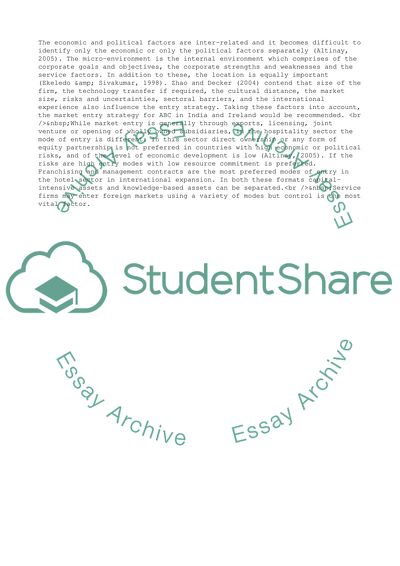Cite this document
(“Entry Strategy Essay Example | Topics and Well Written Essays - 2750 words”, n.d.)
Entry Strategy Essay Example | Topics and Well Written Essays - 2750 words. Retrieved from https://studentshare.org/management/1568351-entry-strategy
Entry Strategy Essay Example | Topics and Well Written Essays - 2750 words. Retrieved from https://studentshare.org/management/1568351-entry-strategy
(Entry Strategy Essay Example | Topics and Well Written Essays - 2750 Words)
Entry Strategy Essay Example | Topics and Well Written Essays - 2750 Words. https://studentshare.org/management/1568351-entry-strategy.
Entry Strategy Essay Example | Topics and Well Written Essays - 2750 Words. https://studentshare.org/management/1568351-entry-strategy.
“Entry Strategy Essay Example | Topics and Well Written Essays - 2750 Words”, n.d. https://studentshare.org/management/1568351-entry-strategy.


